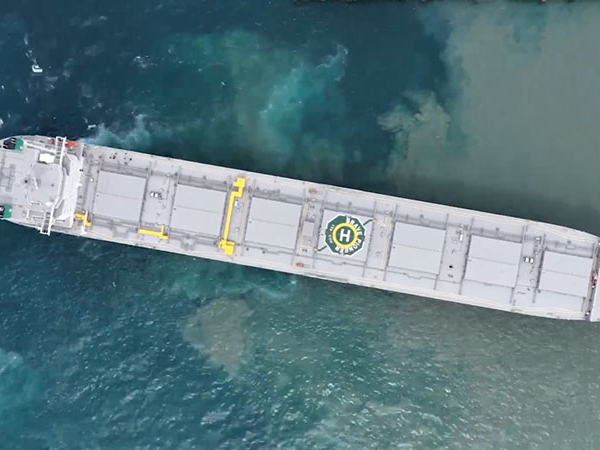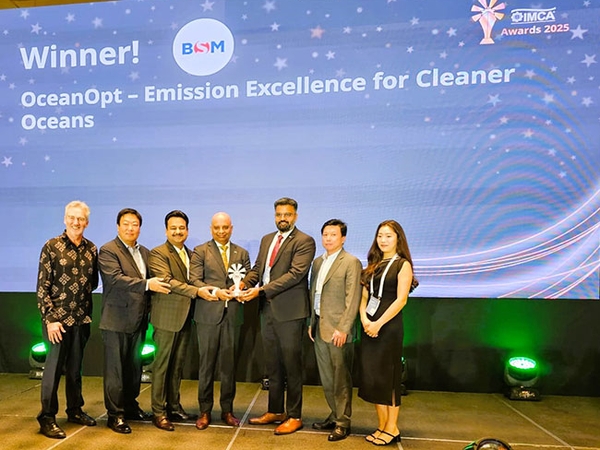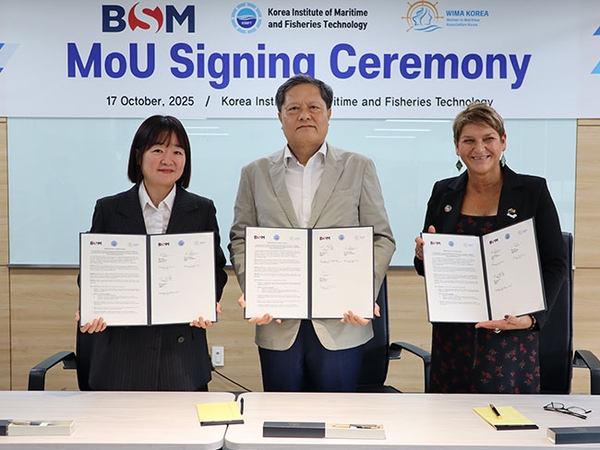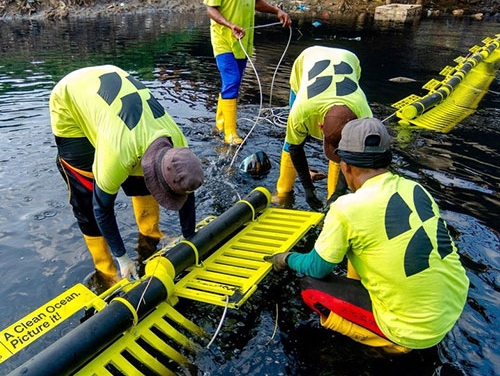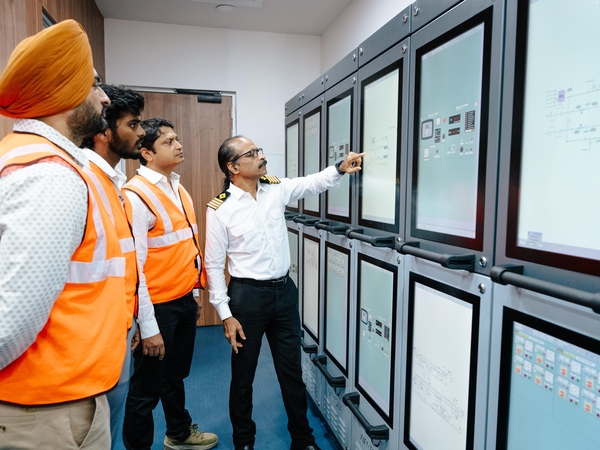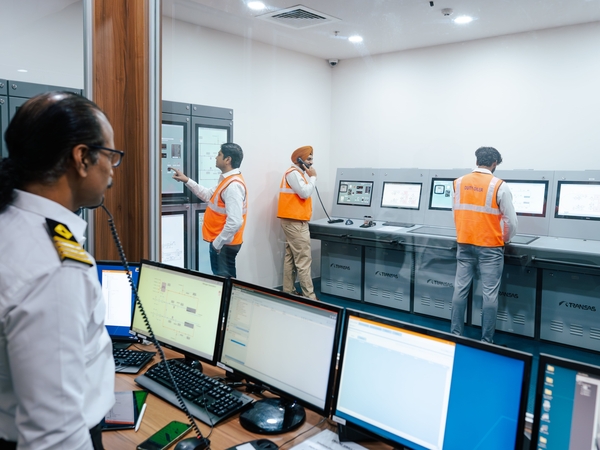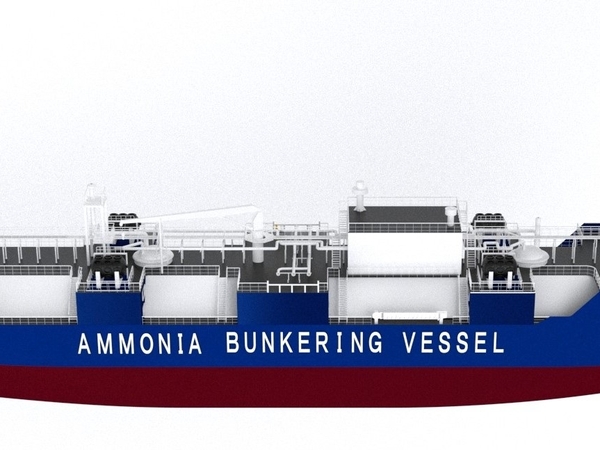
Ian Beveridge, Schulte Group CEO, predicts that the world's shipbuilding sector will come under greater stress following the Covid-19 pandemic.
Chief executive Ian Beveridge says crew changes are 'practically impossible' and predicts more stress for the shipbuilding sector.
The biggest challenge facing shipmanagement companies amid the global Covid-19 pandemic is the limited ability to change crews.
That is according to Ian Beveridge, chief executive of Bernhard Schulte Shipmanagement (BSM) and of the Schulte Group.
Shipowners are relying on management companies more than ever, but Beveridge told TradeWinds that there are no real positives for managers during the crisis.
Travel restrictions and government-mandated lockdowns worldwide have meant that BSM often cannot put its own crews on board vessels, which has impeded its ability to take on new ships.
“It's delayed a transfer of management or, in some cases, it's meant that the shipowner has decided to leave things as they are,” Beveridge said.
Major seafaring nations such as the Philippines have locked down in the past weeks and he said new vessels cannot be registered with the Philippine Overseas Employment Administration.
“It means you can't take a new ship into management and install the Filipino seafarers on board because the agency is closed," he said. "Things have become more difficult even in the last week or so."
That being said, BSM is still supplying Chinese crews for sea trials on vessels that are being completed in China.
“We decided a few weeks ago that we would not attempt to do any crew changes until earliest end of April, unless we have exceptional circumstances," Beveridge told TradeWinds.
He said BSM does not want its crew members to be exposed to the virus while travelling but, in any case, he insisted making quick crew changes is “practically impossible” because of port restrictions and the lack of flights.
“Having said that, we've done some repatriations, also chartering planes in order to bring people home, particularly where we have vessels that have been laid up,” he said.
“It’s possible but it's a lot of work and a lot of expense — of course, the big issue is the uncertainty as to when things will improve or when we can really start catching up on some of the overdue crew changes.”
Crew support
BSM is offering extra support to its seafarers who remain at sea.
“Firstly, we’re in very close contact with the people on board, trying to keep a finger on the pulse and get a clear idea if all is well or not,” Beveridge said.
“For vessels where we are controlling the budget, we are providing unlimited internet access on board so people can communicate more with their families."
He added that BSM is also in close contact with the families themselves, particularly where there are circumstances that normally would require crew to be home or a seafarer has shown Covid-19 symptoms.
So far, he said the situation on board BSM’s managed ships is “pretty stable”.
“The question is just how long it will continue," he said. "At some point, I think things will get more challenging. But, so far, our crews are very understanding of the situation and the morale is good.”
BSM has had two confirmed cases of Covid-19 on its managed vessels — one aboard a passengership and the other on a floating production storage and offloading unit — but luckily no cases on ships at sea.
Both cases were detected in tests conducted by shore-based authorities.
“We have not tried to do any testing ourselves — yet,” Beveridge said.
“We’re investigating our abilities to do it or to work with shore-based laboratories so that we can test ourselves if that becomes necessary."
Newbuildings
Business is slowly resuming in China, where BSM provides newbuilding supervision services at shipyards on behalf of owners.
“Even through the worst of the crisis, we had site teams in place and most shipyards continued working even at a very reduced pace,” Beveridge said.
He added that there are delays at all the Chinese yards where BSM provides services, but nothing drastic, and projects are being completed.
But the world's shipbuilding industry could still suffer following the crisis, especially while ordering activity remains low, according to Beveridge.
He said certain Chinese shipyards entered the crisis in an already weak position and could be closed permanently because there is no visibility on how long it will take for the situation to normalise and when new orders can be taken.
"Without state support, they cannot survive," he said.
“Generally, the whole coronavirus situation will result in an even more stressed scenario for the shipyards and will have a knock-on effect for service providers like us."
Yards in South Korea and Japan are already in a fragile state, he explained.
He observed that shipbuilders in Germany and Norway focus on cruiseships and offshore support vessels — two of the sectors hardest hit by the pandemic and low oil prices — which will subject European shipyards to further stress.
Interview by Holly Birkett, TradeWinds, 23 April 2020
